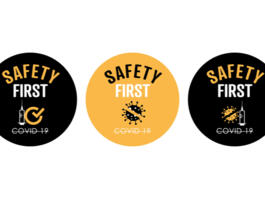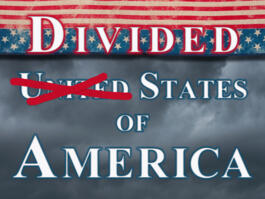Americans Fear Economic Impact of Ukraine Conflict
Russia’s invasion of Ukraine will have a negative impact on the U.S. economy, most Americans believe.

Russia’s invasion of Ukraine will have a negative impact on the U.S. economy, most Americans believe.

Most voters don’t think President Joe Biden has effectively responded to Russia’s invasion of Ukraine, and don’t believe economic sanctions will be enough to stop the Russian aggression.

As Ukraine seeks to repel a Russian invasion, fewer than a third of voters have a favorable view of President Joe Biden’s handling of the situation.

Nearly two years into the COVID-19 pandemic, many Americans have grown tired of mandatory mask policies, but Democratic voters remain convinced that masks are effective and should be required in public places, including schools.

Canada’s prime minister has invoked emergency powers in an attempt to shut down a protest by truckers seeking an end to COVID-19 restrictions, but most American voters support the so-called “Freedom Convoy” – and think a similar protest here would be a good idea.

While President Joe Biden has called on Congress to pass more gun control laws, most Americans believe stricter enforcement of existing laws would do more to reduce violent crime.

Most voters believe President Joe Biden’s immigration policy is worse than former President Donald Trump’s policy, and expect the issue to affect the midterm elections in November.

Amid reports of a massive Russian troop buildup on the Ukrainian border, nearly four-in-five American voters are concerned about a possible invasion, and most think President Joe Biden has been less aggressive toward Russia.

Most voters approve of what the White House is calling a “diplomatic boycott” of next year’s Winter Olympics in Beijing, but overall give President Joe Biden low marks on his China policy.

More than half of voters are concerned that COVID-19 vaccines could have harmful side effects, and don’t think the federal government should have the power to make vaccination mandatory.

Most voters don’t trust major pharmaceutical companies, and think drug makers have too much influence over America’s health care policy.

Kyle Rittenhouse was found not guilty of homicide charges last week in Kenosha, Wisconsin, and nearly half of voters believe media coverage of the trial was unfair to the teenager.

Most gun owners don’t want the U.S. government compiling information on Americans who own firearms, and believe this could lead to all weapons being confiscated.

As the homicide trial of Kyle Rittenhouse continues in Kenosha, Wisconsin, this week, voters are largely divided along party lines about whether the teenage gunman should be convicted.

Two-thirds of voters don’t believe illegal immigrants have a right to sue the U.S. government, and as for settlement payments to families separated at the border, most think the proper amount is zero.

More than half of voters support workers refusing to comply with mandatory vaccination against COVID-19, and believe that firing workers for non-compliance would hurt the U.S. economy.

Nearly half of voters believe Dr. Anthony Fauci lied about U.S. funding for “gain-of-function” research, and a plurality think the government’s top COVID-19 expert should be forced to resign.

At a time when President Joe Biden’s overall approval rating are underwater, climate change is one issue where he’s still ahead.

President Joe Biden campaigned last year on a promise to unite Americans, but nearly two-thirds of voters say the country is now more divided.

Voters strongly disagree with President Joe Biden administration’s decision to turn loose more than 12,000 Haitian migrants in the United States, and a majority now say former President Donald Trump’s immigration policy was better.